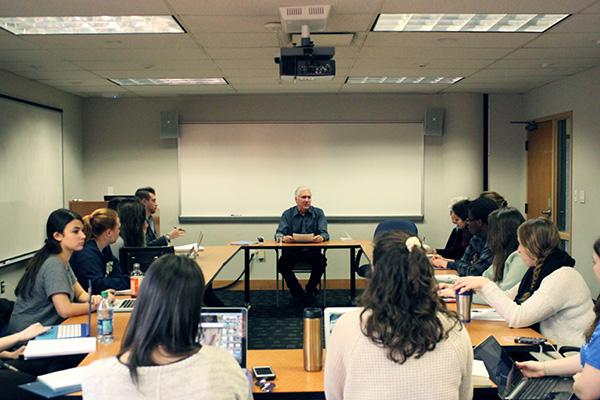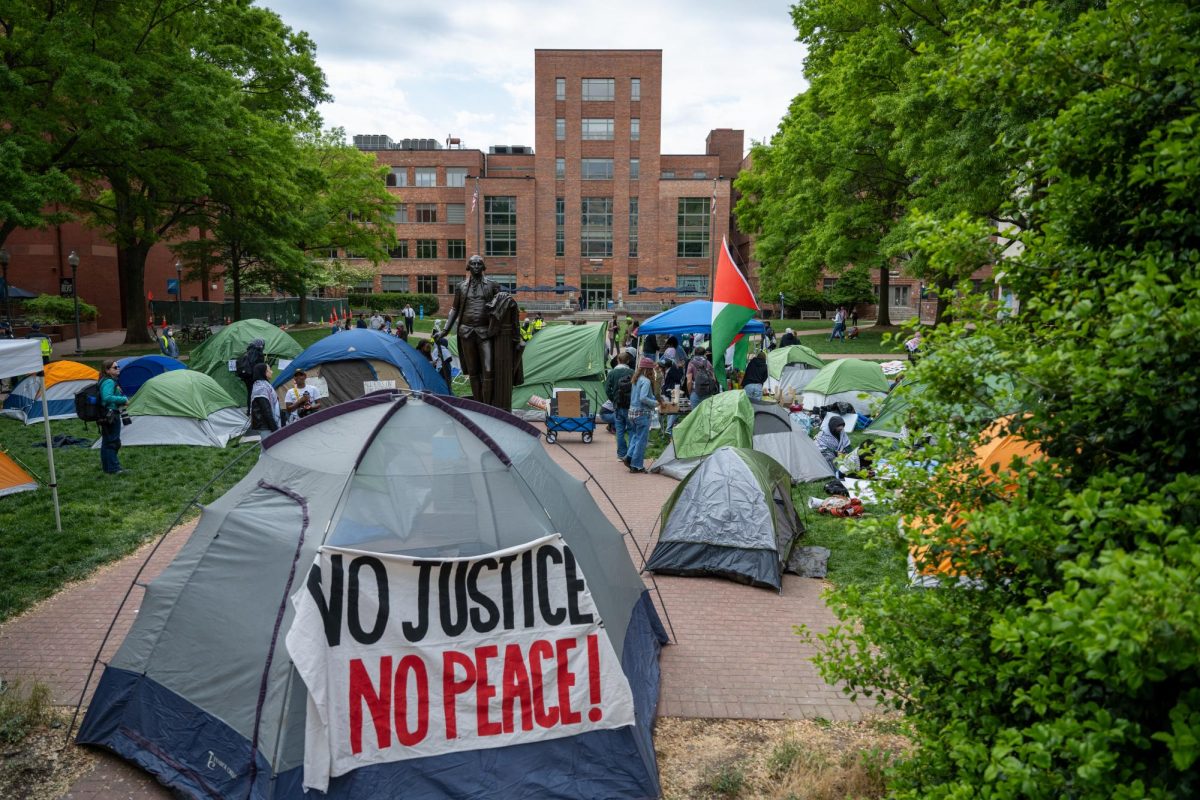A speciality undergraduate program in the Columbian College of Arts and Sciences will end after this semester.
The Dean’s Scholars program, a cross-disciplinary program in CCAS that serves as a living community and academic program for selected undergraduate students, will close after this year. Faculty in the programs said GW is losing a unique program that attracted and retained some of GW’s best students.
Currently two Dean’s Scholars programs exist – one focusing on Shakespeare, which is run through the English department, and the other centering on globalization. Students complete five courses throughout their freshman and sophomore years and live with other students in the programs.
Elizabeth Chacko, the associate dean for undergraduate studies for CCAS, said the original seed money that funded the travel in the programs has now run out and the programs will be “phased out.” She added that no faculty positions are being eliminated as the programs end.
She said students in the globalization program are being offered an opportunity to enroll in the undergraduate global degree program, which will launch in the fall.
“Global education is still a priority for us, so faculty are encouraged to continue to offer similar courses with short-term study abroad components that will be run through the Study Abroad office,” she said in an email.
The program will continue for freshmen who are in it through next year, but next year’s freshmen will not have the option to join a Dean’s Scholars program, one faculty member said.
The Dean’s Scholars program in globalization does not have a director listed on their website and professors who teach classes in it said they did not know the program was ending. The globalization program takes place during the spring semester, requires students to take classes on other cultures and culminates with a trip abroad during spring break, according to the program’s website.
Alexa Huang, who was appointed as the director of the Dean’s Scholars in Shakespeare program in 2012, said she transformed the programs into a two-year, “living-and-learning” community that houses freshmen in the program on the Mount Vernon Campus.
She said she was told in November that this would be the program’s last semester due to “budgetary issues.”
Other CCAS programs, including creative writing and women’s studies, have recently lost funding and faculty positions in light of University-wide budget cuts. Officials also instituted a hiring freeze in CCAS two years ago after a drop in graduate enrollment.
Huang said the end of the program is a “major loss for students across GW” because it brought students from different backgrounds and interests together in their first year on campus.
“Many of the Dean’s Scholars become life-long friends and continue to live together after their first two years at GW,” Huang said in an email.
Other programs like the Women’s Leadership and University Honors programs allow for students to live together on the Mount Vernon Campus in affinities for their freshman year.
Huang added that the Shakespeare program, which requires students to take five related courses throughout their first two undergraduate years and ends with a GW-funded and faculty-led trip to Stratford-upon-Avon, Shakespeare’s birthplace, serves as a recruitment tool. She said students have chosen GW over other colleges that don’t offer similar programs, like New York University.
“Top students chose GW over peer institutions such as NYU because the Dean’s Scholars is a unique program in the nation. No other school offers the same opportunity to freshmen,” Huang said.
Patrick Cook, an associate professor of English who teaches courses in the Shakespeare program, said he was not aware that the lack of funding would end the “very successful” program.
He said that it would be a detriment to freshmen who wanted to be in smaller classes with motivated peers. He added that after students spent two years in the program, many were drawn to major in English and were passionate about studying Shakespeare specifically.
“We witnessed the formation of a very impressive group of students that soon was organizing and promoting a wide variety of Shakespearean activities,” Cook said.
He added that the program helped to foster collaborations between students and professors, partnerships that might not happen in programs with larger classes.
“The Dean’s Scholars program was a rare example of synergistic professor-student innovation that will be missed by all,” Cook said.








